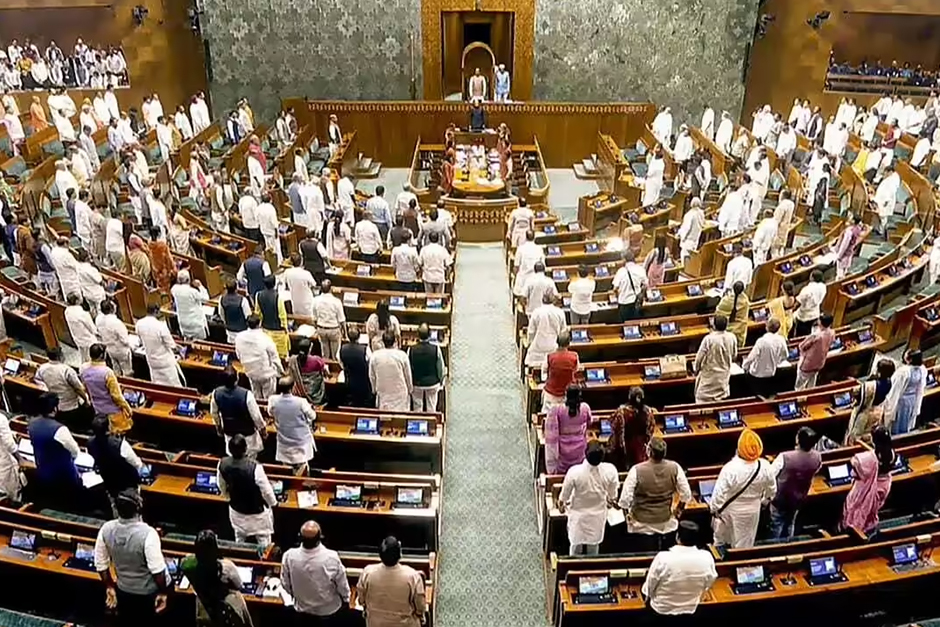Chandigarh, the meticulously planned city often referred to as ‘The City Beautiful’, holds a unique position in India’s administrative landscape. Serving as the joint capital of both Punjab and Haryana, it functions as a Union Territory (UT) directly administered by the Central government. For years, there has been an underlying discourse about its administrative future, with various stakeholders advocating for different governance models. Recent speculation regarding a potential change in its status, possibly via an amendment under Article 240 of the Indian Constitution, gained traction but has since been clarified: no bill concerning Chandigarh’s status will be introduced in the upcoming Winter Session of Parliament. This development, however, offers a crucial opportunity to delve into what such a change would entail and why its deferral highlights complex underlying issues.
Chandigarh’s Unique Status and the Scope of Article 240
At present, Chandigarh is governed by a Chief Commissioner, appointed by the President of India, operating under the aegis of the Union Home Ministry. This structure is a direct consequence of its status as a Union Territory, distinct from states that have their own elected legislatures. The administrative machinery largely comprises central government officials, and policy decisions emanate from New Delhi.
The constitutional provision at the heart of this discussion is Article 240. Titled “Power of President to make regulations for certain Union territories,” it empowers the President to make regulations for the peace, progress, and good government of several UTs, including Chandigarh. Crucially, these regulations possess the same force and effect as an Act of Parliament. This means that significant administrative and even legislative changes can be brought about by presidential decree, bypassing the extensive parliamentary process required for state-level legislation. While this offers administrative efficiency for smaller, centrally-governed territories, it also fuels calls for greater democratic representation and local autonomy, particularly in a vibrant urban center like Chandigarh.
Advocates for change often point to the examples of other UTs like Puducherry and Delhi, which, despite being Union Territories, possess their own elected legislative assemblies and councils of ministers. This model allows for local issues to be addressed by locally elected representatives, fostering a sense of self-governance that residents of Chandigarh increasingly aspire to.
The Implications of a Potential Shift in Governance
Had a bill been introduced and passed to alter Chandigarh’s status, the implications would be profound and far-reaching. The most significant shift would likely involve the establishment of a Vidhan Sabha (legislative assembly) and an elected Council of Ministers, similar to Delhi or Puducherry. This would transform Chandigarh from a centrally administered entity to one with a degree of internal self-governance.
Administrative Autonomy: An elected government would gain control over subjects typically managed by states, such as public health, land management (within certain parameters), and local law and order. This would allow for policies to be tailored specifically to Chandigarh’s needs, rather than being determined by the central bureaucracy. The Chief Commissioner’s role would likely evolve to that of a Lieutenant Governor, largely ceremonial or limited to specific reserve subjects, much like in other UTs with assemblies.
Political Landscape: Such a change would galvanize the local political scene. Regional parties and national parties with local units would vie for power, giving Chandigarh’s residents a direct say in their leadership. This would foster a more responsive governance system, where accountability is directly owed to the electorate.
Economic and Social Development: With local control, the focus of development could shift. An elected government might prioritize different infrastructure projects, urban planning initiatives, or social welfare schemes based on local demands and aspirations. This could lead to a stronger sense of local identity and ownership among residents, potentially enhancing civic engagement and local pride.
Why the Deferral? Perspectives and Future Outlook
Despite the merits of greater local governance, the decision to defer any bill regarding Chandigarh’s status is deeply rooted in the complex political and historical context surrounding the city. The primary hurdle remains the enduring claims of Punjab and Haryana over Chandigarh. Both states view Chandigarh as their rightful capital and have historically resisted any move that might dilute their claims or alter the city’s status without their explicit agreement.
Punjab, in particular, has a strong historical and emotional claim, demanding the transfer of Chandigarh to its sole jurisdiction. Haryana, on the other hand, insists on its equal share and has its own set of demands regarding the division of assets and liabilities. Any unilateral decision by the Central government, even under Article 240, could ignite significant political unrest and resurface long-standing inter-state disputes.
As Dr. Aakash Malhotra, a constitutional expert based in Delhi, noted, “The issue of Chandigarh’s status is not merely administrative; it’s intricately woven with regional politics and historical grievances. Any change, however beneficial it may seem for local governance, must navigate a very delicate political tightrope. The Central government’s caution is understandable given the potential for significant political fallout in two key northern states.”
The absence of a bill in the Winter Session does not mean the debate is over. It signifies that the Central government is likely proceeding with extreme caution, weighing the demands for local autonomy against the sensitivities of Punjab and Haryana. The aspiration for elected representation in Chandigarh is a legitimate one, reflecting a broader democratic impulse. However, the path to fulfilling this aspiration is fraught with political complexities that require careful deliberation and, perhaps, a consensus-building approach involving all stakeholders. For now, Chandigarh will continue under its established administrative framework, but the discussion about its future governance is far from settled.




